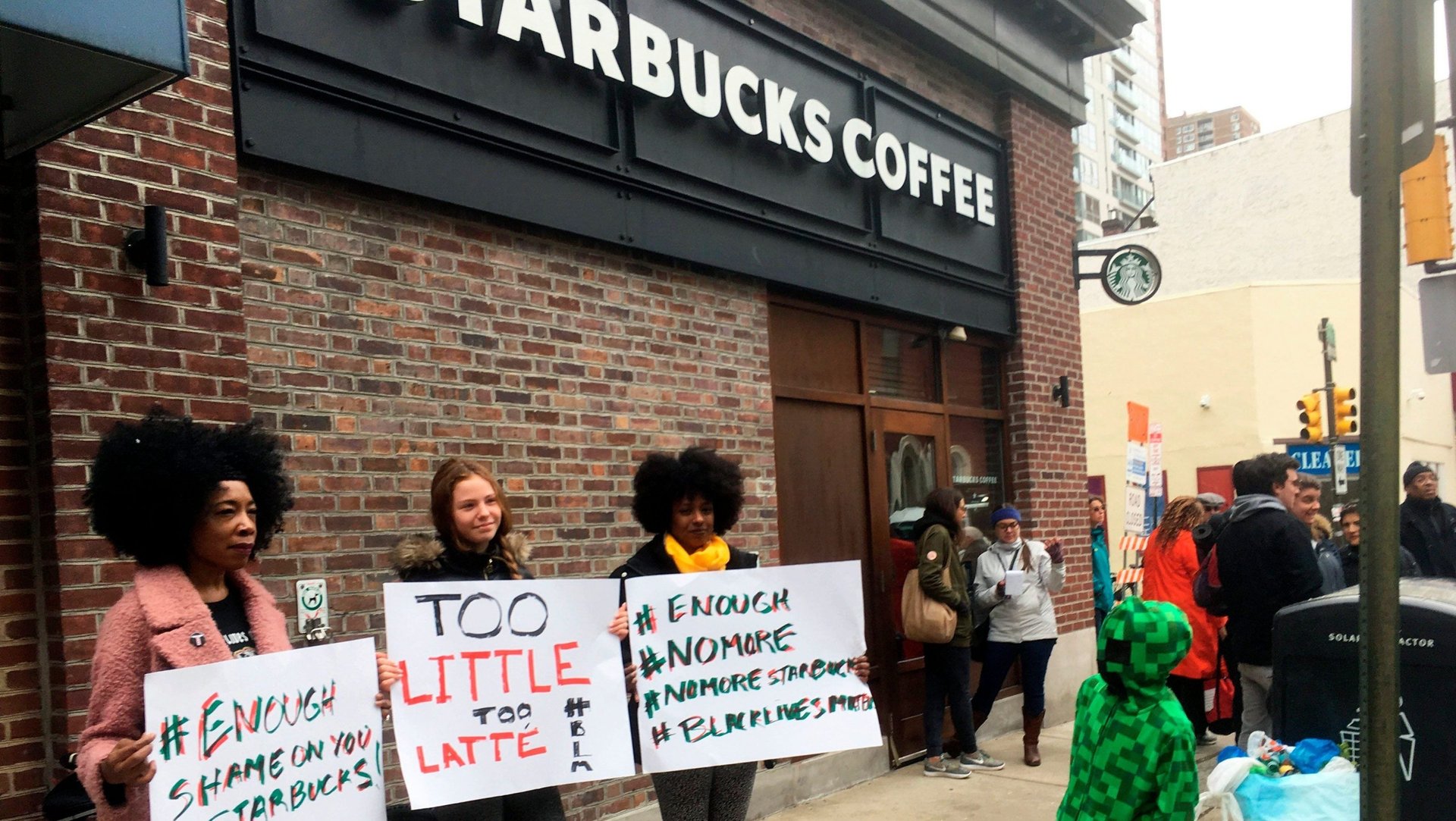Starbucks spent years burnishing its progressive credentials. One employee may undermine it all
Since its founding in 1971, Starbucks has worked diligently to build its brand as a progressive enterprise. From sourcing its coffee beans ethically to offering health insurance to its US store employees, the company has positioned itself as a leader in corporate responsibility.


Since its founding in 1971, Starbucks has worked diligently to build its brand as a progressive enterprise. From sourcing its coffee beans ethically to offering health insurance to its US store employees, the company has positioned itself as a leader in corporate responsibility.
That has helped persuade at least a portion its customers to pay a premium for its coffee, and helped fueled the growth of the chain to more than 27,000 outlets, in countries from Azerbaijan to Vietnam.
Now, the actions of one store manager in Philadelphia threatens to undermine that carefully crafted corporate image.
On April 12, the manager asked two black men who were waiting for a friend to leave the store (they hadn’t bought anything), then called the police when they refused. The police arrested the men for trespassing, and the incident, which was caught on video, created a firestorm on social media about racial profiling. It led to protests at the store yesterday (April 15) and calls for Starbucks to fire the manager.
In response, Starbucks CEO Kevin Johnson issued an apology to the men, and said the company would investigate the store manager’s actions and seek out additional training for employees. “Creating an environment that is both safe and welcoming for everyone is paramount for every store,” he wrote. “Regretfully, our practices and training led to a bad outcome—the basis for the call to the Philadelphia police department was wrong.”
This isn’t the first time Starbucks has stumbled over the issue of race: In 2015, it tried to convene a national discussion on race at its stores by instructing baristas to write “Race Together” on coffee cups. The effort at dialogue was clumsy and ill-considered, but it was at least consistent with Starbucks’ stated progressive goals. Last week’s incident is much more threatening, because it suggests Starbucks’ inclusive message is not backed up in practice.
One of the risks for Starbucks in relying on its progressive image as a marketing device is that it depends on more than 250,000 employees to be brand ambassadors. Each of its frontline employees may have dozens of customer interactions daily, and as the Philadelphia incident shows, it just takes one bad encounter to derail the entire organization.
Policing the behavior of such an enormous body is a headache for all big organizations. When trying to account for the misdeeds of soldiers or sailors, spokespeople for the US Department of Defense often say something to the effect that there are over 1 million members of the military, and on any given day one of them is going to be doing something stupid.
That seems like a fair point, and as with the military, it seems unfair to hold all of Starbucks responsible for one employee’s poor decision. But unlike the military, Starbucks has competition, and given how easy it is to buy your morning coffee else where, it behooves the corporation to make sure it quells the controversy fast.